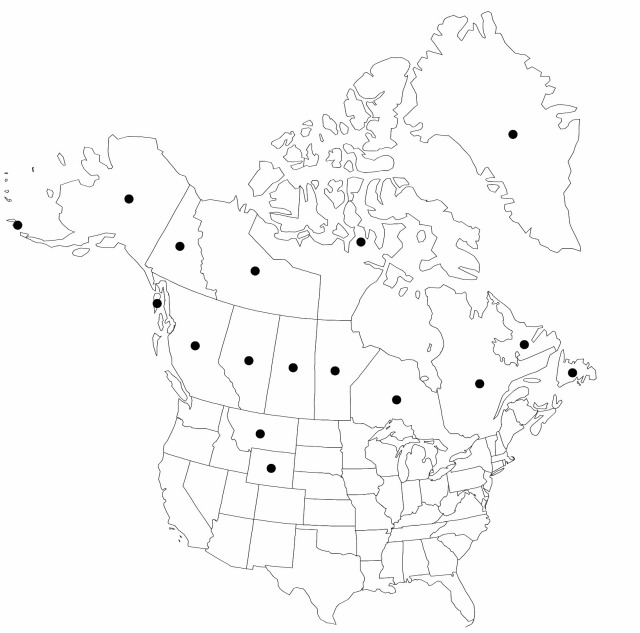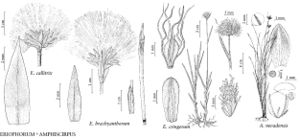Eriophorum callitrix
Mém. Acad. Imp. Sci. St.-Pétersbourg Divers Savans 1: 203, plate 2. 1831.
Plants cespitose. Culms 5–20 (–50) cm, smooth or rough distally. Leaves: cauline leaves 0–1, distal leaf usually proximal to mid culm, bladeless or with short blade; blade forming angle with sheath, filiform or trigonous-channeled, 0.4–1.2 mm wide. Inflorescences: involucral-bracts absent or present as short blade on distal leaf. Spikelets solitary, erect, globose in fruit, 10–20 mm in flower, 15–30 mm in fruit; scales pale blackish brown, margins and tip hyaline, ovatelanceolate, thin; proximal empty scales mostly 10–15, appressed to ascending, ovate, 5–8 mm, ribs ± to margins, midrib not reaching tip, apex acute. Flowers: perianth bristles white to very pale-brown; anthers 0.6–1.2 mm. Achenes ellipsoidobovoid, 1.8–2.1 mm. 2n = 60.
Phenology: Fruiting summer.
Habitat: Tundra, calcareous bogs, wet places
Elevation: 0–2600 m
Distribution

Greenland, Alta., B.C., Man., Nfld. and Labr., N.W.T., Nunavut, Ont., Que., Sask., Yukon, Alaska, Mont., Wyo., Eurasia
Discussion
Two varieties, Eriophorum callitrix var. moravium Raymond and E. callitrix var. pallidus Hultén, have been described based on the pale brown or yellow scales. They are of very local distribution and could be of hybrid origin.
Selected References
None.
Lower Taxa
"shortened" is not a number."thin" is not a number."thin" is not a number.
